






Acclaimed author of the Gaius Valerius Verrens series
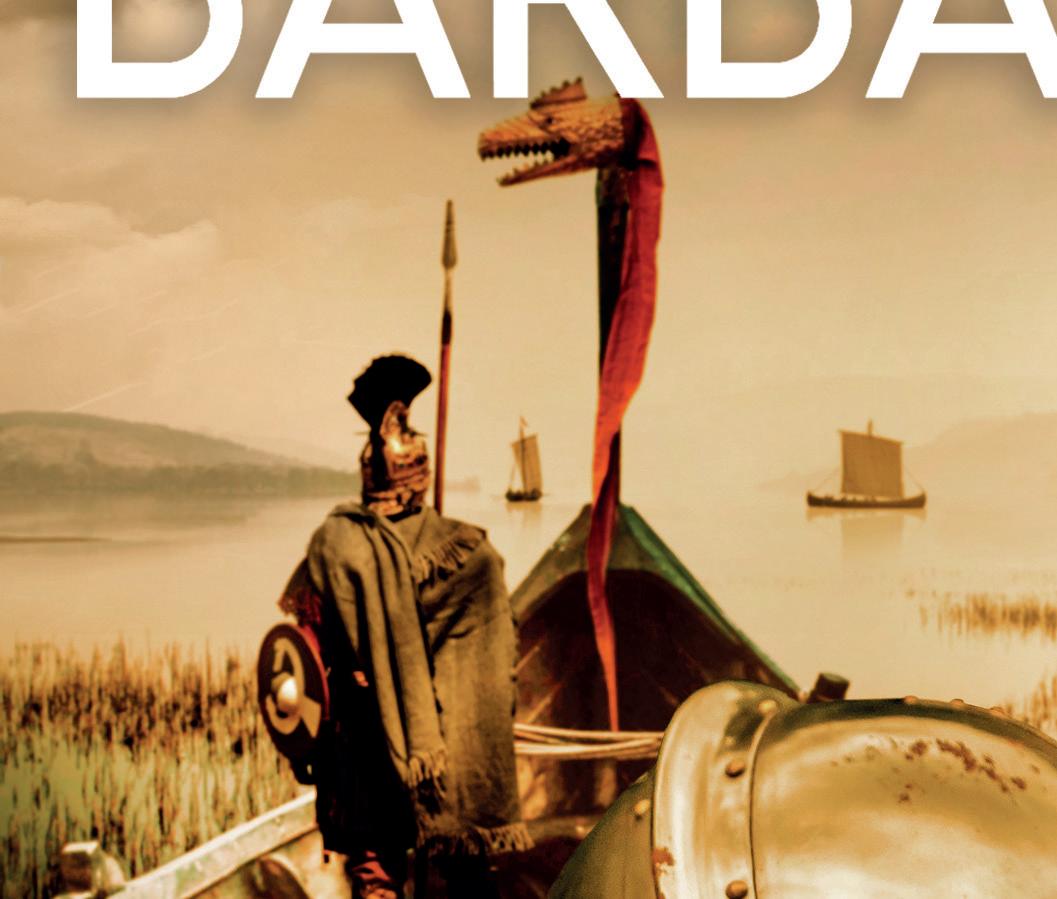

‘One of Scotland’s best historical fiction writers’ DAILY RECORD
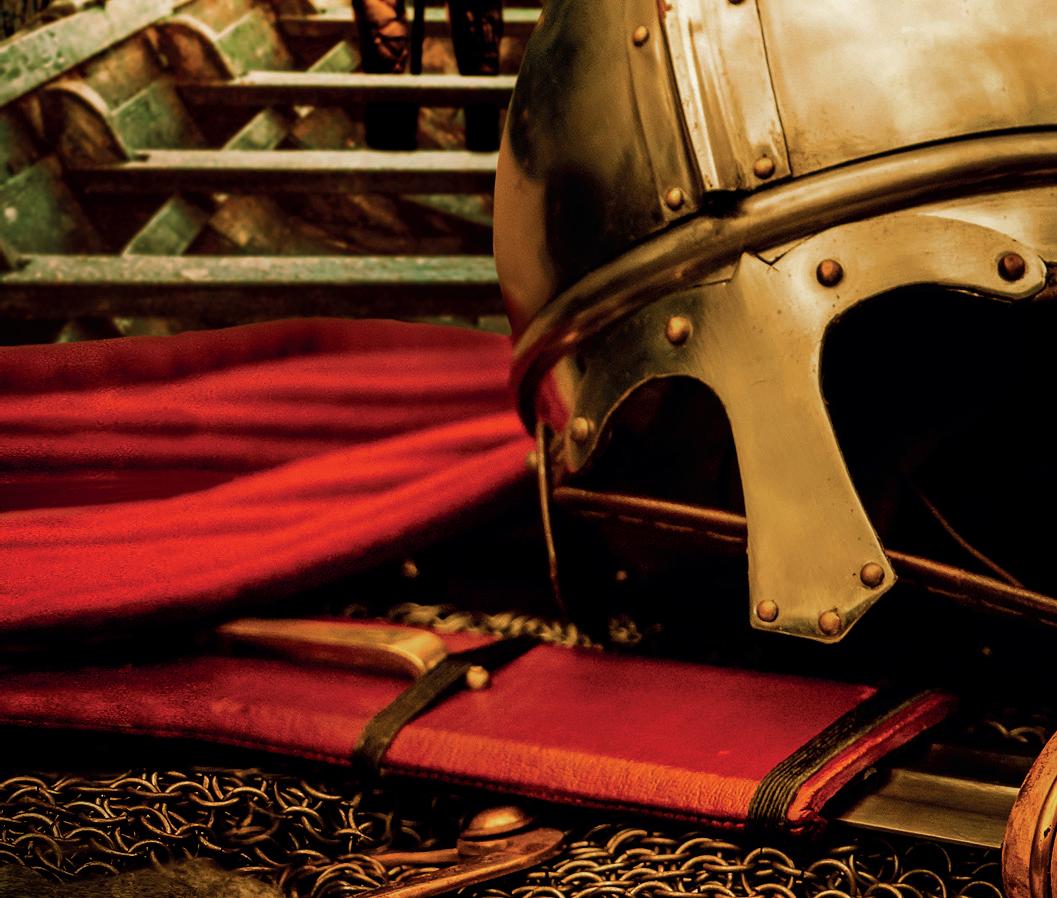

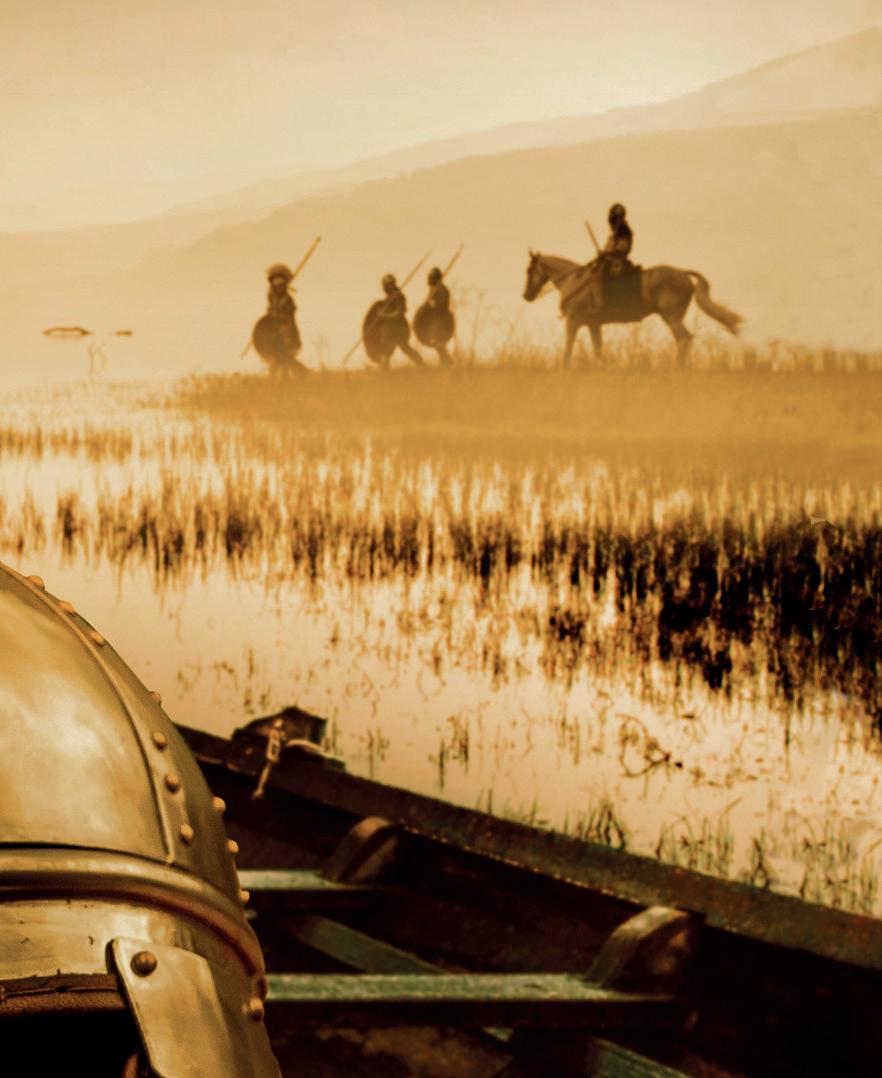
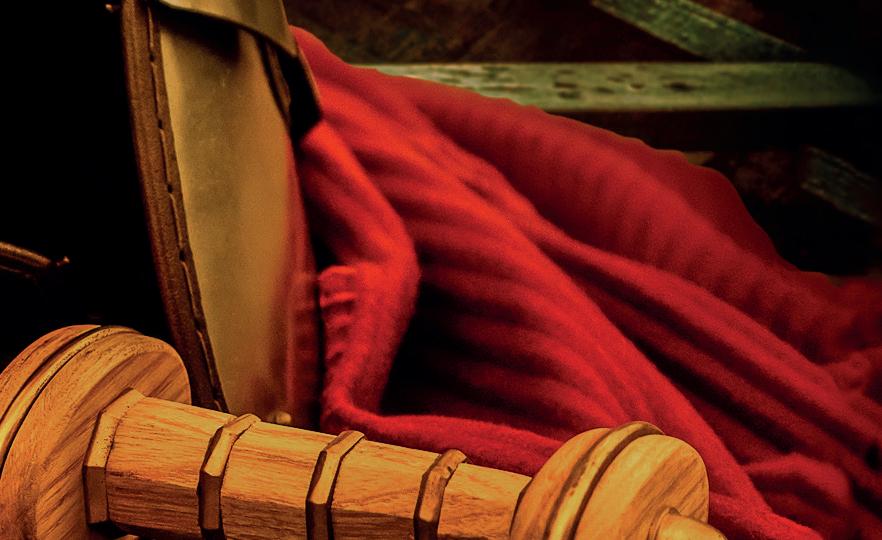

A family at war, a people on the move, an empire in peril . . .

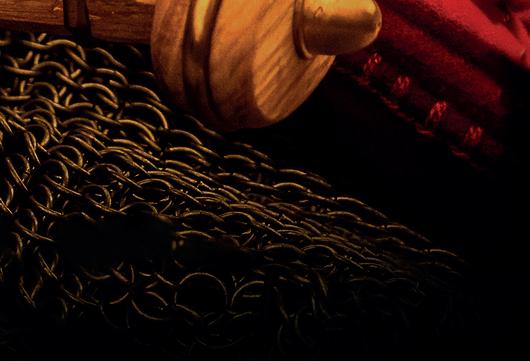
A journalist by profession, Douglas Jackson transformed a lifelong fascination for Rome and the Romans into writing fiction. His first two novels were the highly praised and bestselling Caligula and Claudius, while his third novel, Hero of Rome, introduced readers to a new series hero, Gaius Valerius Verrens. Eight more novels recounting the adventures of this determined and dedicated servant of Rome followed, earning critical acclaim and confirming Douglas as one of the UK’s foremost historical novelists. His most recent novel, The Wall, is set during the final years of the Roman Empire. He has also written adventure thrillers under the name James Douglas. Douglas Jackson lives near Stirling in Scotland. You can follow him on Twitter @Dougwriter
Praise for Douglas Jackson
‘A novel steeped in history . . . his battle scenes are as bloody and violent as any Tarantino movie. Yet he does this in a matter-of-fact way. There is no horror for horror’s sake . . . exhilarating reading . . . full of incident and adventure, the product of the author’s fertile imagination and knowledge of the period.’
‘A tour de force that . . . cements his reputation as not just one of Scotland’s best historical fiction writers but one of our best writers . . . an all-conquering triumph.’
‘Superb battle scenes . . . I was gripped from start to finish.’
‘Superbly written and packed with historical detail and action.’
‘One of the finest writers about today, irrespective of genre.’
Also by Douglas Jackson
CALIGULA CLAUDIUS
The Gaius Valerius Verrens series
HERO OF ROME
DEFENDER OF ROME
AVENGER OF ROME
SWORD OF ROME
ENEMY OF ROME
SCOURGE OF ROME
SAVIOUR OF ROME
GLORY OF ROME HAMMER OF ROME
A Marcus Flavius Victor novel THE WALL
Penguin Random House, One Embassy Gardens, 8 Viaduct Gardens, London SW11 7BW www.penguin.co.uk
Transworld is part of the Penguin Random House group of companies whose addresses can be found at global.penguinrandomhouse.com
First published in Great Britain in 2023 by Bantam an imprint of Transworld Publishers Penguin paperback edition published 2024
Copyright © Douglas Jackson 2023 Maps © Lovell Johns Ltd
Douglas Jackson has asserted his right under the Copyright, Designs and Patents Act 1988 to be identified as the author of this work.
This book is a work of fiction and, except in the case of historical fact, any resemblance to actual persons, living or dead, is purely coincidental.
Every effort has been made to obtain the necessary permissions with reference to copyright material, both illustrative and quoted. We apologize for any omissions in this respect and will be pleased to make the appropriate acknowledgements in any future edition.
A CIP catalogue record for this book is available from the British Library.
ISBN
9780552178228
Typeset in Electra LT Std by Jouve (UK), Milton Keynes. Printed and bound in Great Britain by Clays Ltd, Elcograf S.p.A.
The authorized representative in the EEA is Penguin Random House Ireland, Morrison Chambers, 32 Nassau Street, Dublin D02 YH68.
Penguin Random House is committed to a sustainable future for our business, our readers and our planet. This book is made from Forest Stewardship Council® certified paper.
This one’s for Keir and Tom, the two bright new stars in our growing universe.












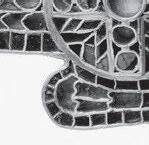




Leuphana (Wittenberge)
Treva (Hamburg)

MARE GERMANICUM


Lupfurdum (Meissen)
Albis river(Elbe)









Venta Icenorum (Caistor St Edmund) Gariannonum (Burgh Castle)




Gerulata (Bratislava)



Andautonia (Zagreb)



Germania
Fuldaha river (Vltava)




Vindobona (Vienna)
Dsuivuna irrev ( D anube)



Bononia (Bologna) aiV murtsI
Iadera (Zadar)





MARE ADRIATICUM


Gaul




Verona
Ravenna
Ticinum (Pavia)




Faesulae (Fiesole)



Italia




Rome



MARCUS FLAVIUS VICTOR’S JOURNEY INTO THE HEART OF DARKNESS


AD 406)
M o u n t a i n s

Pass to Bononia (Bologna)


Faesulae (Fiesole)

Radagaisus’s camp
Radagaisus attacks
Florentia (Florence)

Legions advance
Legions
Cavalry clash
Asunr ir rev A( onr ) { (Florence)

Ostrogoths

Stilicho’s su n

Stilicho’s approach

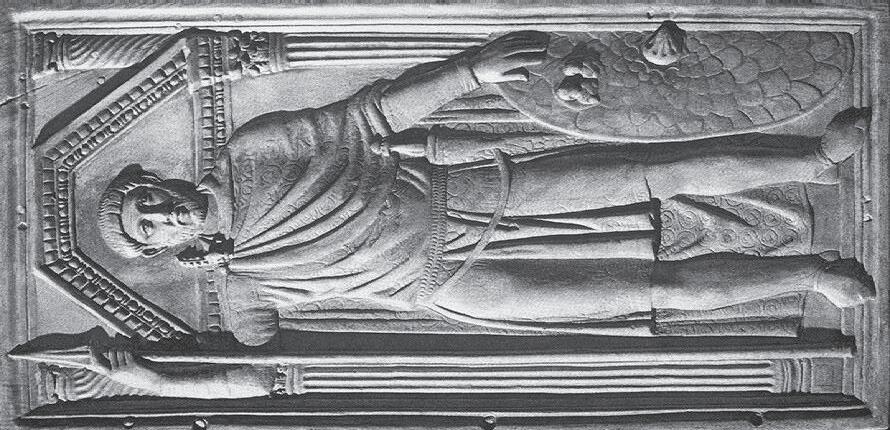



There marched under Roman leaders and banners the onetime enemies of Rome, and they filled with soldiers the cities they had not long ago emptied by hostile plundering. The Goth, the Hun and the Alan responded to their name.
The invitation to cut his own throat arrived in the wolf hour when the Saxons usually came; that time just before death surged screaming out of the darkness, while the guards were half asleep and dreaming of a warm bed and the comforts of a warm woman.
‘You want to watch this one, lord.’ Luko, Marcus’s standard-bearer, glared at the courier, hand on his sword hilt. ‘Appeared out of the dark like a shadow, bold as you like, and said he would see you and only you.’
Marcus studied the still figure waiting in the flickering torchlight by the gate of the fortified villa outside Venta Icenorum: the most ordinary man in the world. He’d met them before, these almost formless creatures who could blend in to any background and move from place to place without leaving the faintest memory of their passing. Medium height, medium build, anywhere between thirty and forty. A workman’s clothes, or a poor trader down on his luck, sweat-stained leather cap covering whatever hair he had. The bland features empty and impassive. Whip him, feed him, stick a knife in him, he didn’t particularly care. His job was to be here, and here he was.
‘You have a message for me?’
The man reached beneath his cloak.
‘Careful,’ Luko hissed.
Just the slightest hint of a smile on the thin lips. ‘If I was here to kill someone, they’d already be dead.’ He drew an object from beneath the patched folds of rough cloth and stepped forward to place it in Marcus’s hands.
A leather pouch, oiled to keep the elements at bay and affixed with not one seal, but two. Marcus saw that the first bore an image of the Emperor Honorius wearing a jewelled crown. It covered the flap of the pouch and proved the contents hadn’t been tampered with. The second was a personal seal, but one that carried with it even more power than the one above.
By the time he looked up the courier was already moving towards the gateway. ‘Will you not stay for an answer?’ he called. ‘Or at least some food?’
‘I was told there would be no answer.’ The man paused in the shadows. ‘And that it was best none should know of my coming but those you trust with your life.’ A faint glint of white teeth in the gloom. ‘Your man on the west wall was asleep, soldier. I could have been inside and away and you wouldn’t even have known I’d been here.’
Luko grimaced at the jibe. ‘Just give me one—’ But he was wasting his breath. The gateway was empty.
‘Have Falco’s beer stopped for a week.’ Marcus’s mind was already on the possible contents of the pouch. ‘And get a servant to bring some bread and cheese to my quarters.’
Luko nodded. ‘The lady Valeria . . . ?’
‘Nobody else is to know about this, for now.’
As Marcus turned away, he heard Luko’s mutter: ‘And we know what that means, don’t we? Nothing but trouble.’
Of course the invitation to commit suicide didn’t say so in so many words: General Flavius Stilicho, magister militum, and commander in chief of the Roman Imperial army in the west, was much too subtle for that.
Marcus read the letter for the second time by the light of the oil lamps, searching for any nuance he might have missed. It was a lengthy missive for a soldier renowned for his parsimony with words, but the familiar voice snapped out in short, economical sentences. A hurried message if Marcus was any judge, perhaps dictated on the move, or in a snatched moment in the midst of other, much more important business. Marcus had fought side by side with Stilicho eight years earlier against the Picts, Saxons and Scotti when the barbarians threatened to overwhelm Britannia. The campaign had formed a bond between them that would never be broken.
‘Marcus, friend and comrade, forgive this sudden intrusion into your life, but I believe the situation warrants it. Word of your exploits reaches me even here in Metulum and though others have taken credit for your victory at Longovicium, be sure that your old friend still has your interests at heart.’ Marcus read the name Longovicium with an accustomed pang. Though his part in the battle was grudgingly acknowledged, he’d never quite received the laurels that might have been expected for a man who had smashed the power of the Picts for a generation. ‘You will be aware, even in far off Britannia, that the Empire has never been in more peril. The names Alamanni, Burgundians, Quadi, Goths, Marcomanni and Suevi will mean little to you, but believe me when I tell you that each of these tribes is as powerful and dangerous as your Picts. All wish to sup from the Roman cup, though for now the Rhenus and Danuvius stand between us, and our army of Gaul and barbarian allies help keep them at bay. Yet I fear still greater danger lies in the east where pressures beyond my knowledge force ever larger numbers – a veritable flood of barbarians – against our frontiers. One day that flood will break. It is to guard against that dread day that I find myself playing politics in this backwater when I should be preparing for war. But I must return to the true purpose of this letter. If the Empire is in peril, then it pains me to tell you that Marcus Flavius Victor is in greater peril still. I am sure that, the occasional rashness apart, you do your duty assiduously as always. Yet word has reached the ear of our Emperor Honorius that one Marcus is plotting to set himself up as usurper in Britannia,
perhaps to challenge him for the western Empire itself.’ Now Stilicho had Marcus’s attention. His deception at Longovicium had created the illusion of just such a conspiracy. If Honorius truly believed his sources this could kill him. ‘And who could that be, but the erstwhile Lord of the Wall, a commander without an army, a soldier without a cause, now languishing discontented and chasing shadows among the reeds and mudflats on the Saxon Shore? The roots of such a calumny lie somewhere in Britannia, perhaps closer than you think, but the conduit is our old comrade, the Hero of Longovicium, Dulcitius, whose renewed presence in the court of Honorius has proved such a trial over the last two years. Nevertheless, he has provided no evidence and I believe I have persuaded Honorius that he cannot, in all conscience, act without it. Yet the Emperor is less malleable at twenty-one than he was at sixteen and our relationship is not what it was. I fear some torturer’s cellar in Londinium is even now being prepared to receive you. Some men might resort to despair at hearing this news – your family, naturally, would also be implicated – but I know you to be made of sterner material. I also know your loyalty to the Empire is as strong as my own. To that end I would urge another course of action. Should the opportunity arise, join me either here or at the Emperor’s court. If you profess your loyalty to him in person, I am certain your transparent honesty,’ Marcus could imagine the wry smile that accompanied the words, ‘and soldierly bearing will win his trust. He has enemies aplenty without creating imaginary ones. Should you avail yourself of this offer, a regimental cavalry command awaits you. I cannot surround myself with enough men I trust, and I would trust you with my life, old friend. At need, the enclosed warrant and attached seal will provide you with safe passage and a change of remounts as long as I hold any power in this land. I remember you once professed a desire to see Rome before you die; join me and perhaps we can visit the city together.’
Marcus sat back and let out a long breath. A heady brew, indeed, and one to be treated with care unless you wanted a sore head. Or worse. On the one hand, stay where you are and eventually the men with the red-hot knives will come looking for you. On the other, join
me and all the riches of the Empire will be at your command. But there was much more. This was a letter that contained murky depths where many less obvious dangers lurked.
‘The roots of such a calumny lie somewhere in Britannia, perhaps closer than you think . . .’
Was Stilicho warning of someone in the provincial bureaucracy or in Marcus’s own entourage? The first he could accept, the second didn’t bear thinking about. These were his men. Almost all of them had fought at his side at Longovicium and stayed with him during the years of virtual exile that followed. Luko, his standard-bearer, forced to do guard duty because they were so short of manpower. Valeria, his sister and second in command, and her husband Zeno, once medicus to the Emperors of the East, now a more than valued comrade. Senecio, the Numidian bowman. Julius, whose twin Janus now ruled the Picts of the High Lands. And Leof, who Marcus swore could smell his fellow Saxons at a bowshot’s distance. Valeria would have her opinion about the letter’s contents, but he decided not to wake her for now.
He turned his attention back to the letter. ‘Yet the Emperor is less malleable at twenty-one than he was at sixteen and our relationship is not what it was.’ And ‘I cannot surround myself with enough men I trust, and I would trust you with my life, old friend.’ What did this tell him about Stilicho? That the general’s credit with Honorius was running low. That his position and even his life was in danger. He considered what he knew of Stilicho’s relationship with the Emperor. Stilicho was the son of a Roman officer, but part-Vandal on his mother’s side, which perhaps explained some of what he was reading. On his deathbed, Emperor Theodosius, Stilicho’s uncle, made Stilicho guardian to his two sons, Arcadius, then eighteen, and eleven-year-old Honorius. A more ambitious man would have arranged a suitable accident for the boys and might have reunited the Empire. Instead, Stilicho honoured his vow to Theodosius and allowed Arcadius to return to don the purple of the eastern Empire in Constantinopolis. Honorius he placed on the throne in the West under his guiding hand, and appointed himself the young Emperor’s commander in chief. From what Marcus had
heard, in his inner heart Stilicho might have had reason to regret his decision.
Was there anything else?
‘He has enemies aplenty . . .’
Of course. Stilicho had married his daughter to the young Honorius to cement his dynasty, and raised his son high in the Emperor’s service. In Marcus’s memory he was scrupulously honest, but could also be utterly ruthless. It was well known he had sacrificed friends and allies to ensure his own and his family’s advancement. Which meant Honorius’s court was a snake-pit of intrigue and conspiracy, a situation that could only induce an atmosphere of paranoia and distrust. And Marcus, the accused usurper, and a man who had not so long ago raised an army capable of taking Britannia for himself, was to stand in front of the notoriously unpredictable Emperor and profess his loyalty?
The thought made him laugh aloud, bringing a look of confusion from the servant standing against the wall to his left. Should he take up Stilicho’s offer? Of course he should. It was the offer of life itself.
But how?
Marcus couldn’t just gather his men and ride to the nearest port. He was under the orders of Chrysanthus, the province’s vicarius and Rome’s most powerful official in Britannia. Chrysanthus would never give permission, and to leave without it was to invite accusations of treason. No, he had to have a proper plan.
‘Marcus?’
He slipped the scroll inside his tunic as Valeria, tall and slim and wrapped in a thick cloak against the chill, entered the room with that wraith-like ability she had to move in complete silence.
‘Don’t you ever knock?’
The dark eyes gleamed beneath a tangle of russet hair and she hugged the cloak tighter. ‘I just wanted to remind you that you should be leaving for Londinium in three hours.’
‘How could I forget?’ Marcus smiled. It was so like her to check and double-check every detail. In battle or in the council chamber he
could always rely on the finely honed blade and the piercing intellect of his warrior sister. ‘It’s less than two weeks since I sent Chrysanthus my last report. Now he says he wants to see me in person.’
‘You think that’s significant?’
‘Who knows.’ He frowned. ‘But the timing is strange, with so many reports of Saxon ships just over the horizon.’
‘You can trust us to give them a warm welcome.’
‘I do.’ Valeria would hear within the hour if a Saxon raider dared to come closer. Marcus had watchers on every coastal estuary and a system of couriers to report their sightings.
‘And think of the possibilities,’ she said cryptically.
‘Yes,’ he agreed. They were so close. One more decent capture and everything would fall into place.
Brenus.
Approaching Londinium after a three-day ride from his base on the coast east of Venta Icenorum, Marcus was struck as always, not by the scale of the walls, which were undoubtedly impressive, but by the lack of soldiers manning them. He guessed that barely one in three of the towers was properly garrisoned and the parapets themselves lay bare of any military presence. Growing up in the north, for him the city had taken on an almost mythical status, the epicentre of Britannia’s wealth and power. Yet, even then, the days of its greatness had likely lain far behind it. Certainly the reality was a pale and slightly grubby shadow of the city of his boyish dreams.
He was well enough known for the gate guard to nod him through with his escort. Instant transformation from the watery sunshine of a late-winter afternoon to the gloom of the narrow streets and their towering, all too often crumbling, three- and four-storey insula apartment blocks. The tall buildings didn’t just block out the light, they created a permanent repository for the latrine-room stench that pervaded almost every part of the city from the broken drains and festering dungheaps. At street level most of the insulae were host to shops and
workshops, but many of the stores were either boarded up or abandoned altogether.
Men, conspicuously lacking jobs and hope, haunted the doorways in groups – the predations of Saxon pirates had left the factories, warehouses and moorings on the Tamesa empty – and their women stared hungrily at passers-by from the shadows of the darkened windows. Look a little further and the next stage of their journey was etched on the pinched faces of the ragged beggars who sat shivering on every street corner. Yet turn a few of those corners and the contrast could not have been more noticeable. In the Forum, well-fed bureaucrats from the vicarius’s staff and lawyers in silk-edged tunics and fine-spun cloaks went about their business among marble columns and painted busts of the Emperor Honorius and his predecessors, Theodosius and Gratian.
What would Brenus think of it all? A needle of anguish seemed to pin Marcus’s heart at the thought he’d never taken the opportunity to show his son the true glories of Rome.
After the battle at Longovicium he’d intended to return home with the Ala Sabiniana to their fort at Hunnum, and then find a way to sail to Saxonia and search for his son. Brenus had been taken in a Saxon slave raid against the Brigantes, along with Marcus’s mother, Venutia. Poor Venutia. When he remembered her, it was the iron will and the calm clarity of her thinking he missed the most. She had been a Brigantian princess and matriarch not just of the family but of the entire tribe. She must be dead by now, he guessed; she’d been old and sick when the raiders came. But, according to a Saxon Leof had questioned, Brenus had still been alive in the spring. Praise God that he lived still. He had been eight or nine when he was taken, a sickly child whom Marcus had never forgiven for the death of his mother in childbirth.
For the first years of his son’s life, he’d ignored Brenus. Then, when it became clear he would never be a warrior, actively spurned him, barely able to look at the boy. When Brenus realized his father wanted nothing to do with him, he retreated to the arms of his grandmother which, if anything, made Marcus dislike him more. Yet since Brenus had been taken, each passing day increased the burden of regret that
he’d never chosen to know his own son. He understood it was partly self-pity, but he knew that if he did nothing, he would have a gaping hole where his heart should be for the rest of his days. At first, it had been little more than a vague and ill-thought-out urge to find a ship and make a headlong dash to Saxonia. Fortunately, circumstances intervened to prevent what would undoubtedly have been a disaster.
First his old enemy Julius Dulcitius, dux Britanniarum and military commander of the north, insisted Marcus and his cavalry regiments should join him in the pursuit of the fleeing Picts. Since Marcus had no intention of catching the surviving invaders, now under the rule of his former comrade Janus, this turned out to be a protracted and fractious affair which did nothing to endear him to a man who already suspected him of being a traitor to Rome.
When Dulcitius eventually released him to return to Hunnum, he found his responsibilities as Lord of the Wall diminished. Units that had been under his control for years were grouped together under subordinate commanders. His authority over others was dramatically reduced. A senior official, the magister officiorum, appeared without warning to carry out an inquiry into certain dealings involving the Lord of the Wall and hitherto enemies of Rome, the Selgovae king, Corvus, and Coel, king of the Votadini.
By now two years had passed and Marcus’s frustrations built to the point where they threatened to destroy him, and would have, were it not for Valeria’s wisdom. Still, he had no option but to comply when he was called to Londinium six months later to temporarily assume the duties of the Count of the Saxon Shore, who had drowned crossing a river during a storm. There it quickly became obvious that all was not well at the heart of Britannia’s administration, and that he, Marcus, continued to be under suspicion for the events that preceded Longovicium.
Yet, to his astonishment, all was not in vain, for his unwanted transfer resulted in a development that would never have occurred had he remained on the Wall. Not only did he discover Brenus’s location, he also knew the name of the man who held him.
Marcus led his escort on the cobbled road along the edge of the enormous basilica and then turned south towards the bridge that spanned the river. It was here, on the north bank between the bridge and a sometimes noxious stream, that Chrysanthus lived amidst the decaying magnificence of the governor’s palace. The palace was a sprawling affair of several dozen rooms, with its foundations set firmly in the Empire’s glory days. A series of lovingly tended terraces overlooked the river, with views to the fields and woods of the south bank beyond.
His relationship with Chrysanthus, an elderly nobleman of impeccable lineage but uninspiring character, could sometimes be a puzzling one. It had been clear from the start that Chrysanthus wanted him close, where he could be watched and controlled – the inevitable consequence of the whispers that followed Longovicium. Yet the very scale of Marcus’s task forced Chrysanthus to give him the mobility and the freedom to operate he needed. That meant cavalry, and cavalry based close enough to the coastal settlements at highest risk of attack to react with a fair chance of success. Nominally, he was also in command of the garrisons of the Saxon Shore forts of south-east Britannia. In reality, most of the static detachments were useless against any raid more than a few miles from their walls.
They arrived at the gates of the palace and Marcus dismounted and handed his mount’s reins to Luko. ‘Find an inn and get the men something to eat,’ he said, handing the standard-bearer a purse of silver. ‘But make sure they stay sober. Once they’ve eaten send Ninian to wait for me here.’
He presented his pass to the soldiers on the gate, where Chrysanthus’s chief of staff, and the controller of his network of spies, waited to escort him to the vicarius. ‘I hope I find you well, Aulus?’ Marcus greeted him. If anyone in Britannia had knowledge of his visit from Stilicho’s courier it would be Aulus Ostorianus.
‘I suppose that would depend on your definition of well.’ The other man’s expression didn’t change. A pair of peacocks crossed their path, the male displaying the rainbow-hued fan of his enormous tail and the
female screeching her admiration. ‘Bloody pests, they shit everywhere. If it was up to me I’d wring their necks, but his wife dotes on them. Did you ever hear of an ancient form of torture where a man is tethered to four horses all being urged in different directions?’
‘No, but it sounds painful.’
‘So now you know how you find me. How is life in the wetlands?’
‘Damp.’
A bark of laughter escaped the pursed lips. ‘When they carry me out of my office in a shroud, as they undoubtedly soon will, your recommendation as my replacement will be on the vicarius’s desk within the hour.’ Ostorianus led the way along a corridor lined with religious paintings. ‘These are new,’ he said. ‘Chrysanthus believes they will help his visitors reflect on the words they are about to utter. I hope you have a good excuse for all that silver you appear to have lost to the Saxons?’
Ostorianus spoke in jest, but Marcus knew his words hid genuine concerns. It was unusual, these days, for a raid to count fewer than three wooden hulls and ninety warriors, and often they amounted to many more. A big raid would sweep a swathe of sparsely defended country clean of cattle, plunder and people. It could last for days while a substantial enough force was gathered to drive the raiders back to their ships. Actual battles were relatively scarce. Most likely the Saxons would withdraw under the watchful eyes of the Roman cavalry, and sail away showing their arses and baring the tits of their female captives. Fortunately, the larger forts of the Saxon Shore – Branodunum, Gariannonum, Othona and the other strongholds north and south of the Tamesa – acted as a deterrent to any larger incursion and provided a place of sanctuary to anyone who could escape the Saxon axes. Nevertheless, it was simple for a few ships to ghost their way up an estuary in the dark, and it was up to Marcus and his cavalry to deal with them. They’d been coming for generations. Sometimes a trickle, sometimes a steady but manageable stream, and sometimes a deluge that brought fire and blood and slaughter to the length and breadth of the province.
‘You know the Saxons, Aulus,’ Marcus replied with a tight smile. ‘Slippery as wetland eels.’
‘Here we are.’ They had arrived at a pair of ornate double doors guarded by a single soldier. ‘We should talk again soon, Marcus. Your dazzling wit always brightens up the darkest corners of my troubled mind. Eels, ha, ha, you’ll need to come up with something better than that.’
Marcus nodded to the soldier and the man knocked on the door.
‘Enter.’
Inside the enormous room a hunched figure sat at a desk next to a large window overlooking the muddy brown waters of the Tamesa. Julius Chrysanthus looked up from between two neat piles of scrolls and waved Marcus to a seat in front of him. The vicarius had a long neck and bulging eyes that gave him a permanently surprised expression. His hair was styled in tight raven curls that could only be a wig, and he wore a tunic edged with gold ribbon beneath a thick cloak against the chill draught from the river. At a smaller desk close by, two clerks paused in their labours and flexed their aching, ink-stained fingers. ‘If you will excuse us, prefect, I will just finish this letter before you present your report.’ Chrysanthus cleared his throat. ‘Where was I?’
‘The necessities, lord,’ the older of the two clerks whispered.
‘Ah, yes. As a result of the recent predations . . .’ The clerks’ styli flew across the parchment in front of them. Marcus knew from his previous visits that the fastidious Chrysanthus always insisted on having two copies of his words recorded simultaneously, and would check them later for accuracy. If Marcus had been looking for a word to describe him on their first meeting, that word would have been ‘ineffectual’. Now, he wasn’t so sure. ‘. . . we are lacking in all the usual necessities that mitigate the privations of employment in a province which has so little to offer
in compensation: oil of the olive tree, garum, of course, and wine of the better sort. I am aware of the impact recent events on the Rhenus have had on our naval capabilities, but I would entreat the Augustus to order six shiploads of the aforesaid necessities to proceed with a suitable escort from Gesoriacum to Londinium, at the earliest possible convenience, to provide succour for the residents therein, and ameliorate the effect of the recent, unavoidable rise in taxes . . . No, scratch that final part out, end it at therein, and add all the usual salutations.’
Chrysanthus took a sip from a silver cup at his right hand. Small beer, Marcus guessed; he would not allow wine to pass his lips during business, and Marcus knew better than to expect an offer of any.
‘Now,’ the vicarius paused to allow the clerks to position new sheets of parchment and refresh their styli, ‘I bid welcome to Marcus Flavius Victor, praefectus alae, temporarily commanding the forces of the Saxon Shore. Your report please, prefect. The main points will suffice. I have no doubt all the fine detail will be in the written document.’
‘Very well, lord.’ Marcus winced at the scrape of the styli that accompanied his words. ‘On the Feast Day of Saint Cornelius it was my privilege to command a force which intercepted one hundred Saxons who sailed on three ships from . . .’
Chrysanthus waited until Marcus concluded with a report of his most recent success a week earlier. ‘So,’ the vicarius said. ‘It appears that I must congratulate you, prefect. Five Saxon raids on our coasts in the last four weeks, three successful interventions on your part, upwards of one hundred and sixty-seven raiders captured or killed for the loss of only three of your cavalrymen. Is that correct?’
‘By God’s grace it is, lord. Fortunately, the other incursions caused only minor damage and the deaths of a few old and sick villagers.’
‘And you seized six ships to be sold off for the treasury?’
‘I must have expressed myself poorly, lord,’ – just how much did the old bastard know? – ‘two of the captures were worm-eaten hulks immediately condemned by my shipmaster. We would have been risking lives even trying to sail them to Londinium. They were taken out to sea and burned to the water line.’
‘Hulks indeed,’ the rheumy eyes narrowed, ‘if some of the examples we’ve seen at the dockside are any guide. It sometimes beggars belief that the Saxons have such a reputation as expert shipbuilders.’
‘The Saxons who raid our coast are among the poorest,’ Marcus felt bound to point out. ‘Driven by hunger and privation to risk everything they have for plunder and slaves. They would come in willow coracles if they thought they could survive the voyage.’
‘You wouldn’t be selling these condemned ships back to the Saxons, would you, prefect?’
All Marcus could manage in reply was an outraged ‘On my honour, lord . . .’ before he realized the gurgling, choking sound emerging from Chrysanthus was actually laughter.
‘I speak in jest, of course.’ He waved a hand to tell the clerks to delete what they’d written. ‘But if you knew what I do nothing would surprise you. Which brings us to the missing silver.’ He picked up a scroll from the pile to his right. ‘I have had a complaint from the curator of a village six miles inland from Branodunum about a raid just after the feast of the Epiphany. He said he’d had a report from a woman you released that not all the silver the Saxons took was returned to them.’ The vicarius raised an eyebrow.
‘I take a small portion of their silver because they don’t pay their taxes and that means you can’t afford to pay my men.’ Marcus risked the almost-truth.
‘Leave us.’ Chrysanthus nodded. The clerks gathered up their writing materials and bowed before hurriedly exiting the room. Marcus waited, puzzling over the curious direction the interview had taken and wondering what came next. Chrysanthus seemed to be waiting for something, or perhaps he was just trying to put some thought into words. Eventually, he said: ‘You must think me a weak old man, Marcus Flavius Victor?’
‘I . . .’
‘No,’ the thin lips twitched into a smile, ‘don’t deny it. In many ways I am a weak old man, but it wasn’t always so. When I was your age I was a soldier. That nonsense you were involved in before Longovicium
could have seen your head on a block, but you persevered in any case. The only reason you still retain your head is that you won. Five years later, the Picts continue to mind their own business in their northern fastness beyond the Wall, because of you.’
‘That situation may not last,’ Marcus pointed out. ‘As our weakness becomes ever more apparent, their strength grows. King Janus is unlikely to keep them in check for much longer.’
‘And that is the real reason I brought you here, Marcus. At a time when Britannia has never needed more to be united it has never been more divided. Rome will not always be there for us. As far as Honorius is concerned, we are a small island a long, long way from Italia. A nuisance, not worthy of his time or trouble. Britannia will need men like Marcus Flavius Victor. Men who have a connection and a loyalty to the land and its people, and who are prepared to shed blood to defend it. Militarily, we are as divided as we are bureaucratically. What is required is a man who can unite the soldiery and lead them.’
Marcus shook his head with a wry smile. ‘With the greatest respect, vicarius,’ he said, and found he meant it, ‘I doubt there is a more unsuitable man on this island.’
‘I thought you would say that,’ Chrysanthus said evenly. ‘But I believe you are wrong. Let me put another premise to you, Marcus. If not you, then who? Oh, there are unscrupulous commanders who will be quick to gather their troops together and persuade some poor unfortunates to hail them Augustus or Caesar, or some other ludicrous title. What this island needs isn’t some ambitious fool who will strip Britannia of her troops and leave her defenceless while he makes some crazed bid for the purple. It needs someone hard, even brutal, ruthless enough to do what needs to be done to take control and clever enough to keep it. Someone like you. You already have the loyalty of the Wall garrisons, and victory at Longovicium won you more friends among the fort commanders. Did you know there are men in the Sixth legion at Eboracum who worship your sister as a goddess in the belief that she led them to a bloodless victory over the Picts?’
‘And you would trust me with that kind of power?’
‘You—’ Chrysanthus frowned as he was interrupted by a soft tap on the door frame.
‘My apologies, vicarius.’ The speaker was a tall, handsome man, slightly younger than Marcus, perhaps approaching forty. He had a long nose, intelligent grey eyes, and the easy manner that went with wealth and privilege.
Chrysanthus pursed his lips in evident distaste. ‘You know Claudius Constantinus, of course.’
Marcus bowed. Constantinus was Britannia’s magister militum and nominally his superior, but Chrysanthus had altered the chain of command so Marcus reported directly to the vicarius. Marcus knew Constantinus resented the change, as his next words seemed to confirm.
‘I was just passing and learned that our defender of the Saxon Shore was here to tender his monthly report. Since the report will eventually come to me, I thought it would save time if I joined you.’ Constantinus smiled. ‘I hope I haven’t spoiled your flow, Marcus?’
‘As it happens, magister militum,’ Chrysanthus said with a tight smile, ‘this officer has completed his report to me. Fortunately, I have duties that take me elsewhere, so I will not have to endure it again. You may use this room if it suits your purpose. Marcus, you will think on what I said?’
‘Of course, lord.’ Marcus managed to hide his confusion. Chrysanthus pushed himself up from his desk. Marcus waited until he’d left the room before he picked up the scroll containing his report.
‘Oh, there’ll be no need for that.’ Constantinus slipped into the vicarius’s seat without ceremony. ‘Just think yourself fortunate that I’ve saved you from an hour-long lecture about the state of the province. Lord, he’s a dull old dog, Chrysanthus.’ He paused, evidently seeking Marcus’s agreement, but Marcus stayed silent. ‘You know, Marcus,’ Marcus found himself the focus of the intense grey eyes, ‘Londinium should be the richest city in the Empire. It has fallen before, any number of times, and risen to ever greater heights. It will rise again. Our trade is strangled, our frontiers besieged.’ Constantinus was talking
about Britannia now, not just Londinium. ‘What Chrysanthus was about to tell you is that Rome will soon abandon us to our fate, if she has not already. What are we to do?’
‘What can we do?’ Marcus knew what Constantinus wanted to hear, but he wasn’t in the mood to provide it. Let the man say it himself.
Constantinus didn’t hesitate. ‘We must show we have the strength to guide our own affairs.’ Marcus nodded; there was no denying that, it was more or less the same message he’d had from Chrysanthus. But of course, there had to be more. ‘To do that we need a strong man, a warrior who can command the loyalty and respect of all Britannia’s troops.’
‘As magister militum . . .’
‘We both know that would not work. Nominally, I have control of the few thousand soldiers of the field army in the south, but in reality their loyalty is split between me and that old fool Chrysanthus. Terentius Cantaber, who commands the Sixth at Eboracum, the most powerful infantry force in the province, has little liking for me. On the other hand, he has the greatest respect for you as a soldier. And who moulded the garrison of the Wall into an army at time of need, and could do it again when the need is even greater? Marcus Flavius Victor.’
Marcus stared at him. Did he mean it? Of course he did. Because it made perfect sense. Everything he’d said was true. All of it was possible, perhaps even necessary, but he sensed there was more to come.
Constantinus waited for a reaction, and when none was forthcoming Marcus noticed a little twitch of irritation at the corner of his lip. ‘I will do everything in my power to bring the forces of Britannia together under your command. We will create a single field army powerful enough to suppress any domestic threat. I will try to convince Chrysanthus to join us, but he is an old man with old-fashioned notions.’ Marcus wondered if he’d missed the words ‘of honour’ or whether Constantinus thought they were too sensitive for his ears. The magister militum’s next words confirmed his suspicions about who had engineered this meeting. ‘In any case, he is not the only bureaucrat capable of keeping a firm grip on the province’s finances.’ Aulus
Ostorianus’s jolly features swam into Marcus’s head. We should talk again soon, Marcus. Indeed, we should. ‘Whoever is in charge, the civilian situation is of secondary importance until we have created stability and we can only achieve that through the military. From a position of strength we will negotiate treaties with your old friends the Picts, the Scotti, and Niall of the Nine Hostages on Mona, which will buy us time . . .’
Marcus wondered at the way the man conjured up a solution to the province’s woes that had evaded generations of the Empire’s soldiers and diplomats, but he only had one question.
‘Buy time for what?’
‘However strong we are,’ Constantinus said carefully, ‘the long-term prosperity of this province and this island can only be achieved against the background of a stable and peaceful Roman Empire. Those who have cast Britannia aside are no longer capable of gaining that outcome. Stilicho and Honorius have twice allowed the barbarians to reach the gates of Italia; it is only a matter of time before they kick in the door. Stilicho is finished and Honorius is weak. Like Britannia, Rome needs a strong leader. You once had ambitions to be Emperor, Marcus, but the time was not right.’ It wasn’t true, it had all been a ruse to bring Briga and her Picts to a place where she could be defeated. Did Constantinus know about Marcus’s blood-father, Magnus Maximus, a great Roman general who had fulfilled that very ambition and set himself up as joint ruler of the West? If he did it would only make him more certain of his man, as his next words confirmed. ‘Once we have consolidated what we have in Britannia, I would propose that we take ship to Gaul, where I have already prepared the ground. There I will place the purple on your shoulders and the gold crown upon your brow and proclaim you Augustus.’
He waited for the acknowledgement of his genius.
Marcus laughed. Oh, it was neatly done: the appeals to his vanity and his conscience, the precise placing of each gaming counter –power, strength, stability, peace – and, finally, the hook is set. I will place you on the same throne on which your father sat. Suicide. Marcus
had a finely honed sense of his talents and abilities, but he had no illusions that even a mix of cunning, ruthlessness and a willingness to steal, cheat, and, yes, kill, would keep a Brigantian bastard alive for long in the circles in which Constantinus mixed. No, the brute would serve his purpose, whatever that may be, and then he would be disposed of. He felt a dangerous glow ignite inside.
He met the other man’s eyes with a cold stare which contained an unmistakable message. ‘I fear you have mistaken your man, Constantinus,’ he said softly. ‘I am many things and I have done many things, but I would never play the traitor.’
When he turned away he had to clench his fists to stop his hands shaking.
‘I was angry,’ he told Valeria. ‘And I think what Chrysanthus said unnerved me. Yes, we can feel it happening, but to hear it from him . . .’
‘So one man hinted he would give you control of every warrior in Britannia, and the kind of power that would effectively make you king of all the Britons, and another pledged to wrap you in the purple, all within the hour? It sometimes amazes me that you’ve lived so long, Marcus.’ She shook her head. ‘You really just turned and walked away after everything Constantinus told you?’
He shrugged. ‘I was glad to get back to the wetlands. The air here may be damp, but at least it doesn’t stink of treason.’
They sat in the main room of the large, fortified villa, within a morning’s ride of the coast, that he’d commandeered as his headquarters. A fire crackled in a brazier near the window, but made little impact on the chill air. The villa was on one of the few slightly raised areas of ground in the wetlands and sat at the centre of a substantial estate, with a village where the people who worked the farms and factories lived in damp, noxious hovels. High walls surrounded the house, an unusual feature that must have provided the owners
with an illusion of security as the Saxon raids became ever more frequent.
‘It never occurred to you,’ Valeria continued, ‘that you were putting your neck in a noose, or that by playing Constantinus along and asking for time to consider the offer you might have gathered the information Chrysanthus needed to put a noose around his? You’ll need to kill him, Marcus. Because if you don’t, he’ll kill you.’
That thought certainly had occurred to him, but it came as a surprise to hear it articulated with such cold ruthlessness by his sister.
‘How?’
‘You’re the one who’s well versed in murder, brother, not me. Why don’t you talk to Zeno?’
‘Poison?’ Marcus almost spilled his drink. ‘In Christ’s name, woman, what do you think I am?’
‘Since when did you become so particular?’ Valeria said. ‘You either want him dead or you don’t. If you do, it has to look like an accident or Chrysanthus will feel honour bound to investigate. Of course, there is another option.’ She looked him in the eye. ‘Perhaps it’s time to leave. Time to find Brenus?’
He nodded. It made sense. But . . .
‘There’s also this.’ He handed her the scroll case that had arrived from Stilicho. ‘It complicates things even further, if you can believe that.’
She took the scroll from the pouch and unrolled it, picking up an oil lamp to provide more light. He saw her eyes widen as she read the content, but she made no comment until she’d reached the end. ‘You’re right,’ she said, ‘it does complicate things. In essence three of the most powerful men in the Empire have made you an offer you can’t afford to refuse. At best, you will have to disappoint two of them, perhaps with fatal consequences, and all three options go against your own desire, which is to release Brenus from his captivity. What will you do, Marcus?’
He shook his head. ‘I don’t know. I feel like a fly trapped in a spider’s web. The more I wriggle the more I become enmeshed.’
‘Then perhaps I can help you find an answer.’
*
Marcus ran his eyes over the sleek little ship moored in the shadow of a giant willow tree and his heart soared at the import of what he was seeing. The final piece had fallen into place. She was clinker-built as most of the Saxon boats were, with her side planks overlapping each other, and fixed to a light frame that would allow her to ride high in the waves. They’d have used green wood to build her – oak by the looks of it – because newly harvested timber was easier to work and more flexible than seasoned. Her mast was unstepped for ease of concealment, but Leof already had men fitting the oars, and on a windless day like this he wouldn’t need her sail even when he reached the open sea.
‘Is she as good as she looks?’ Marcus called across to the young Saxon.
‘As dry as a saint’s old bones and well found, maybe six months old,’ Leof assured him. ‘She’ll swim like an otter in open water.’
‘When did you capture her?’ Marcus asked Valeria.
‘We had word of a Saxon raid the day after you left for Londinium,’ she said. ‘There were twenty of them, the youths of some coastal community sent out to make mischief far away from home. We couldn’t save the village, but we ambushed them on the way back to the ship, killed them all, freed their captives and recovered this silver.’ She nudged one of the sacks at her feet.
‘Good,’ Marcus smiled. ‘Take what the men are owed in wages and send the rest to Chrysanthus in Londinium. I have a feeling I’m going to need his good will before long.’
‘Perhaps you could ask him to free us from our duties for a month while we look for Brenus?’
‘If I thought there was any chance of him agreeing, I would,’ Marcus said. ‘But all it would do is make him keep a closer rein on me. I can hardly break wind without him knowing, as it is. Half the servants at the villa are probably in his pay.’
‘Then how will we ever get away?’
‘God will provide,’ he assured her, with a mock piety he knew would infuriate her.
Leof appeared in the little ship’s prow.
‘As far as anybody else is concerned,’ Marcus told him, ‘she’s an antiquated hulk with rotting timbers and a bilge you could take a bath in. We burned her to the water line and sank what was left.’
Leof grinned. ‘So I take her to the others?’
‘You do. And when our business is done, this one’s yours.’ The grin grew wider. If he lived to enjoy it, Marcus had just given the young man a fortune and a potential source of income for life.
When they returned to the villa, Marcus pleaded exhaustion after a long day in the saddle and announced he was taking to his cot early.
‘Are you sure, Marcus?’ Valeria asked. ‘Perhaps it would be good to take your mind off all this for a while? There’s a travelling circus in the village. Clowns, jugglers, illusionists and acrobats, and exotic beasts. We were planning to give it a visit.’
‘I’ve had enough of illusionists for a lifetime after my little chat with Constantinus,’ Marcus smiled. ‘But don’t let that stop you.’ He went to a wooden chest, retrieved a small leather pouch and handed it to Valeria. ‘Invite anyone who’s off duty and buy them a drink at the tavern. Good night.’
Marcus woke, instantly alert, but uncertain why, and the depth of the darkness confirmed dawn was still a long way off. A few moments told him there was no point in staying in bed, he was never going to get back to sleep. He wrapped himself in a cloak and, with a smile that would have sent a shiver through his sentries, went to inspect the guard.
The two men at the door of the main complex straightened as he emerged into the torchlight, no sleepyheads here. ‘Anything to report?’
‘No, lord,’ said Tosodio, a trooper who’d deserted the Sixth legion to join Marcus. ‘It’s all been quiet since those lucky bastards rolled back from the tavern. Cold, though.’ He brushed droplets of water from his cloak. ‘Might even snow tonight.’
Marcus nodded in agreement and walked towards the gateway in
the south wall. ‘Who goes?’ The challenge came from the shadow of a small hut the sentries used.
‘Marcus Flavius Victor, prefect Ala Sabiniana.’
‘State the watchword and approach and be recognized.’
‘The watchword for tonight is Sabinus, Falco. I should know because I set it.’
‘Sorry, sir.’ The tone was troubled but resolute. ‘Draconarius Luko insisted no one was to pass without the watchword, not even the Emperor himself.’
‘All right, Falco.’ Marcus walked past him to the bottom of the steps leading to two ostentatious but more or less pointless towers flanking the gate. ‘You may tell the draconarius that your beer ration is hereby reinstated.’
‘Thank you, sir.’ He could hear the grin in the young man’s voice. A single guard in the gatehouse overlooking the walkway: Senecio, who never seemed to sleep. ‘Lord,’ he said, as Marcus reached the top of the stairs.
‘How did you know it was me?’
‘By the sound of your footsteps and the fuss that fool Falco made of you.’
‘I’ll just make a circuit of the walls. All quiet?’
‘It is here,’ the Numidian said. ‘But who knows elsewhere. I told Luko we should have a man on each wall . . .’
‘But he said I didn’t think it was necessary?’
‘That’s right, lord. Maybe I’m just getting nervous in my old age.’ A flash of white teeth accompanied the words.
‘No,’ Marcus said. ‘Maybe I’m just not nervous enough. I’ll talk to Luko in the morning.’
The walls stood three times the height of a full-grown man, with the villa at their centre, and encompassed an area perhaps a hundred paces across. Marcus left the shelter of the tower and walked out into the darkness, and immediately wished he’d thought to snatch up a thicker tunic. The icy wind came from the north-east and cut through his cloak like a knife, carrying intermittent squalls of rain and sleet that